Petroglyph National Monument
Petroglyph National Monument protects one of the largest petroglyph sites in North America, featuring designs and symbols carved onto volcanic rocks by Native Americans and Spanish settlers 400 to 700 years ago. These images are a valuable record of cultural expression and hold profound spiritual significance for contemporary Native Americans and for the descendants of the early Spanish settlers.
GPS: Lat: 35.139 Long: -106.711 From Interstate 40, take the Unser Blvd. exit (#154) proceed north 3 miles to Western Trail. Turn left or west onto Western Trail and follow road to the Visitor Information Center parking lot. From Interstate 25, take the Paseo del Norte exit (#232) and proceed west to Coors Road exit south (must be in center lane to veer left at the Y). Proceed south on Coors Road to Western Trail. Turn right or west onto Western Trail and follow road to the Visitor Info Center parking lot.
- Hiking
- Front-Country Hiking
- Junior Ranger Program
- Wildlife Watching
- Birdwatching
- Park Film
- Shopping
- Bookstore and Park Store
- Native American Heritage
- Geology
- Volcanoes
Hand Print Petroglyphs
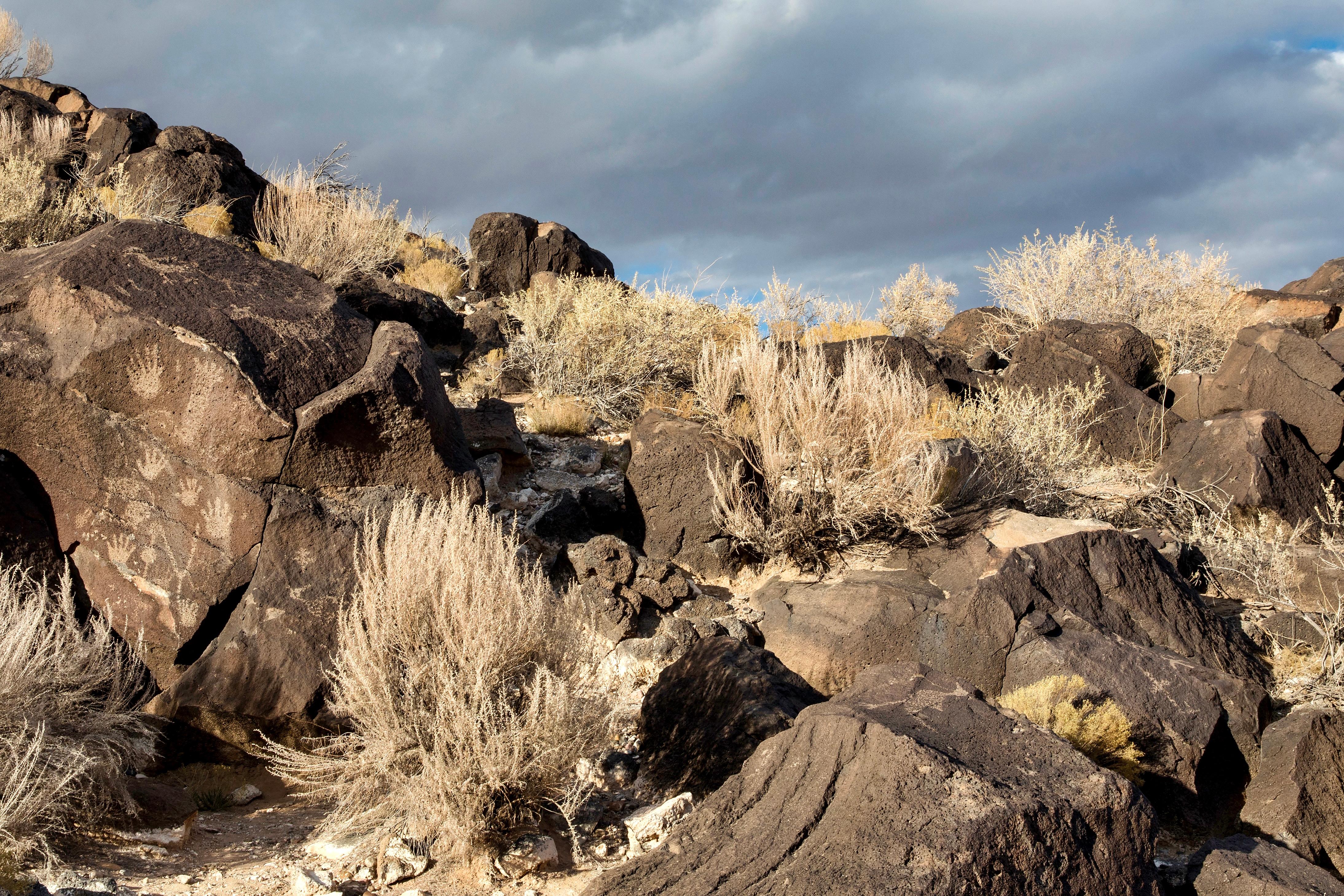
Hand prints and other petroglyphs on boulders at Piedras Marcadas.
Hawk Petroglyph at Mesa Prieta
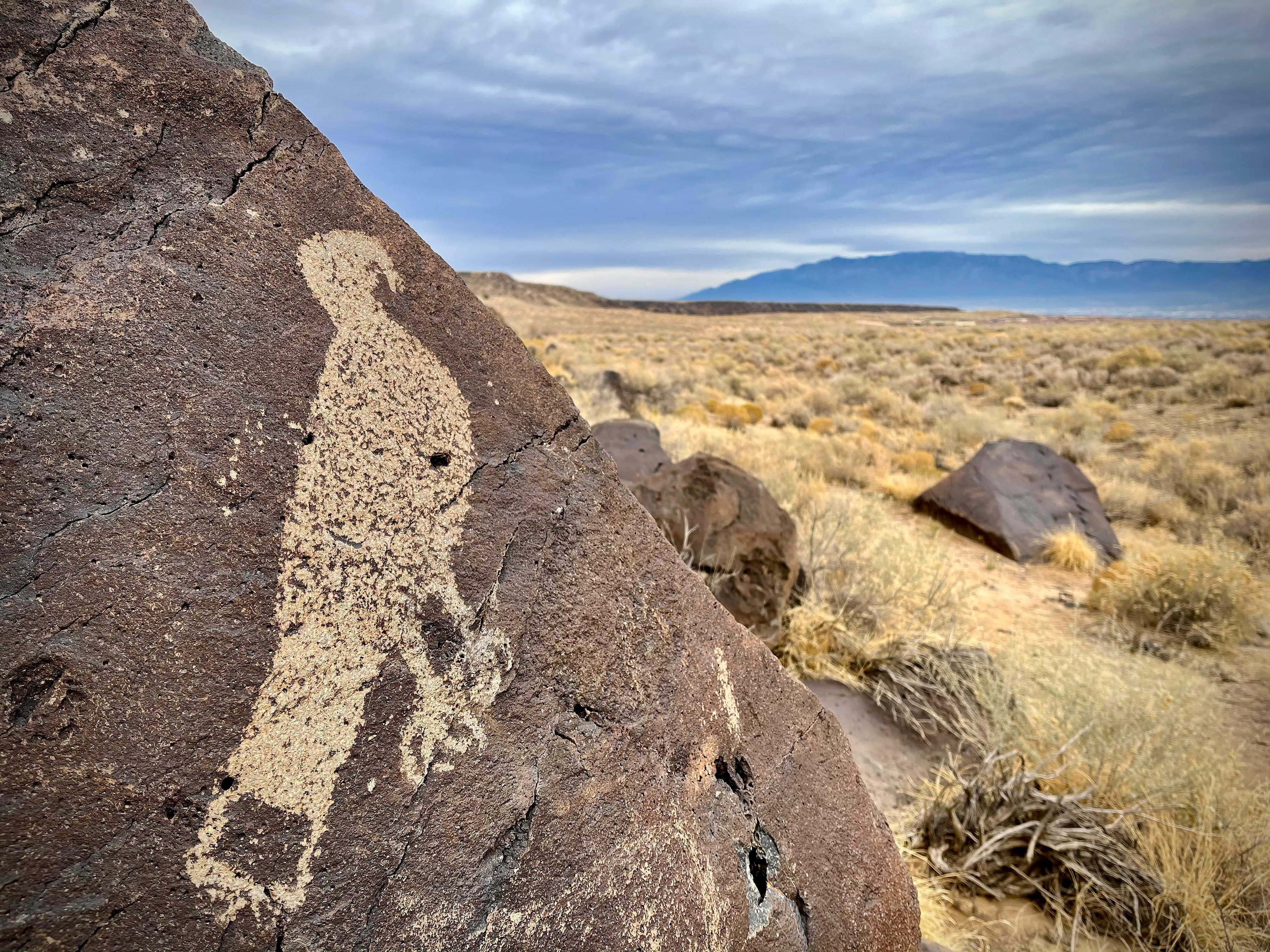
A petroglyph of a hawk at Mesa Prieta. It can be visited from the South Point trailhead.
Desert Mammal petroglyph
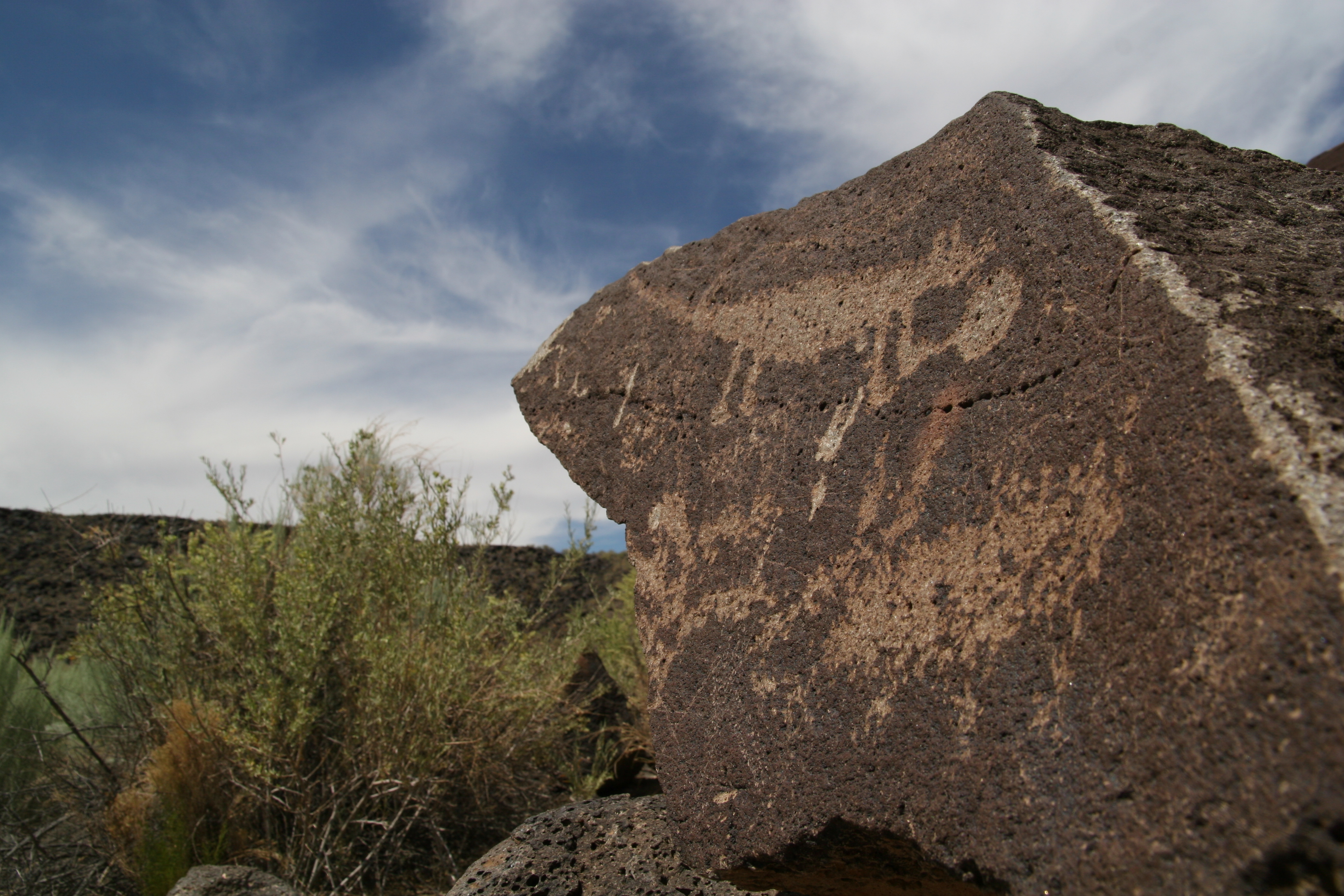
Mammal petroglyph along the Mesa Point Trail in Boca Negra Canyon.
Macaw petroglyph
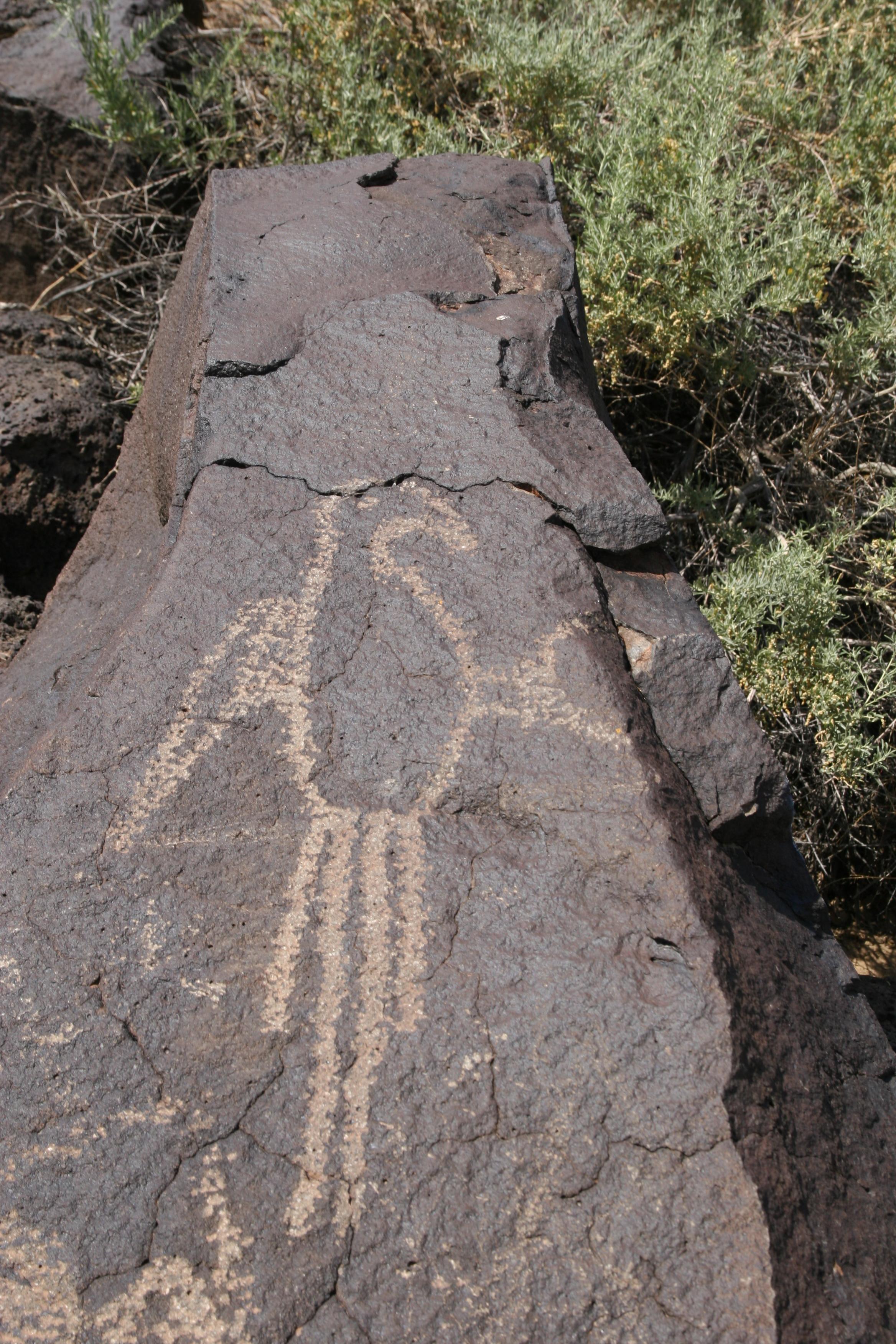
Petroglyph of a macaw parrot along the Macaw Trail in Boca Negra Canyon.
Coyote and Rattlesnake watching over Rinconada Canyon
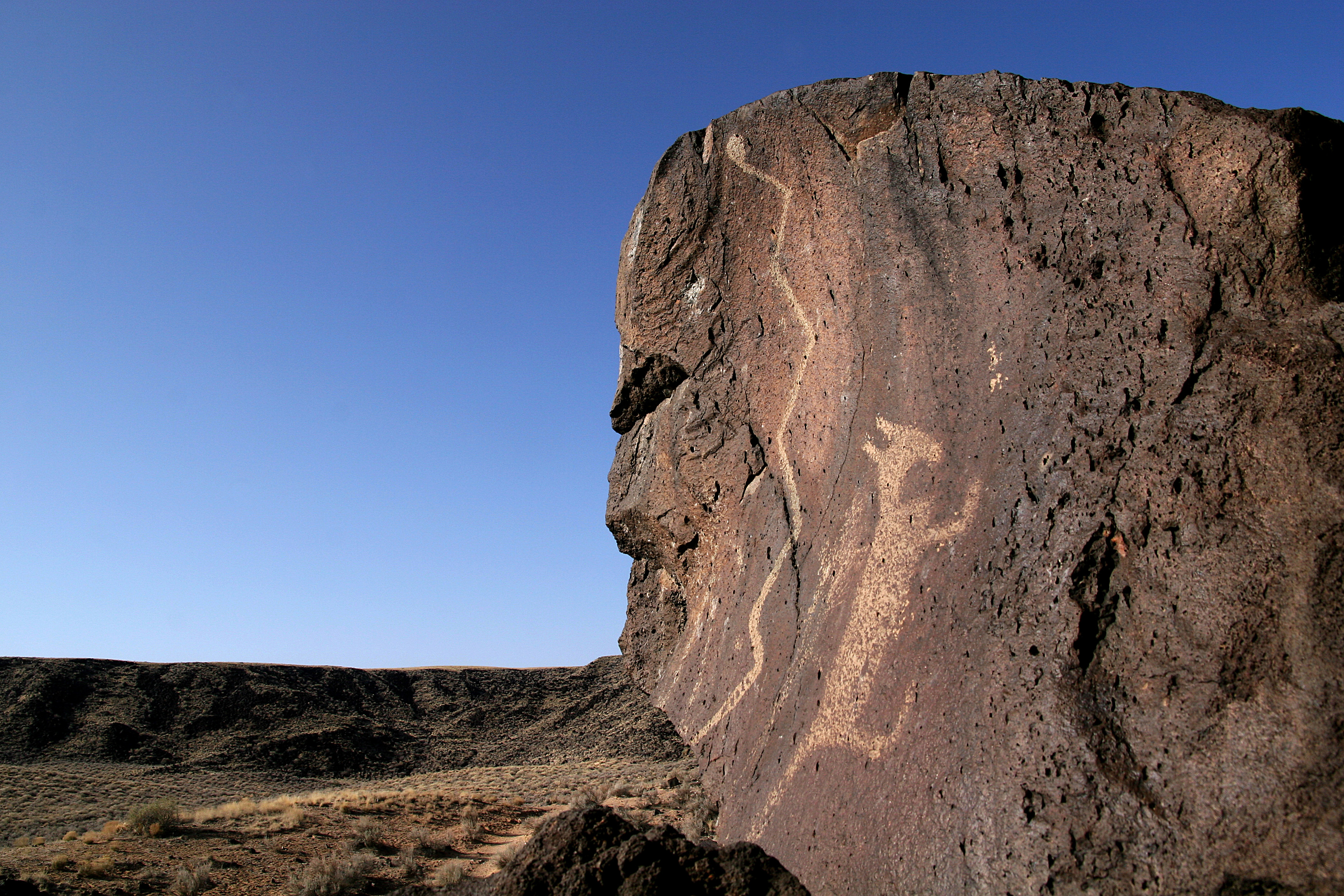
Petroglyph imagery of a coyote and rattlesnake in Rinconada Canyon.
Grazing Sheep in Rinconada Canyon
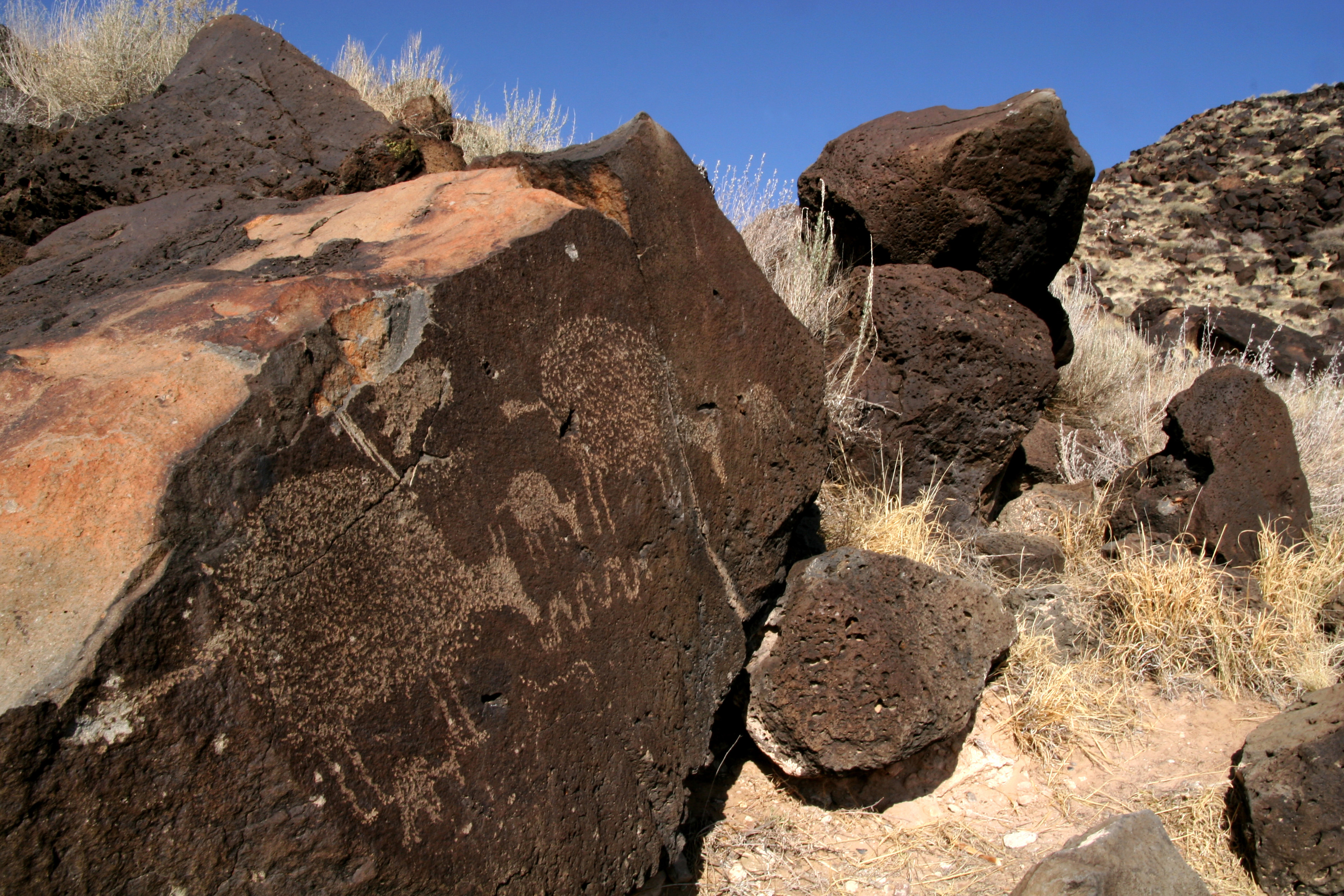
Petroglyph panel of sheep grazing in Rinconada Canyon.
Snow Dusted Cinder Cones
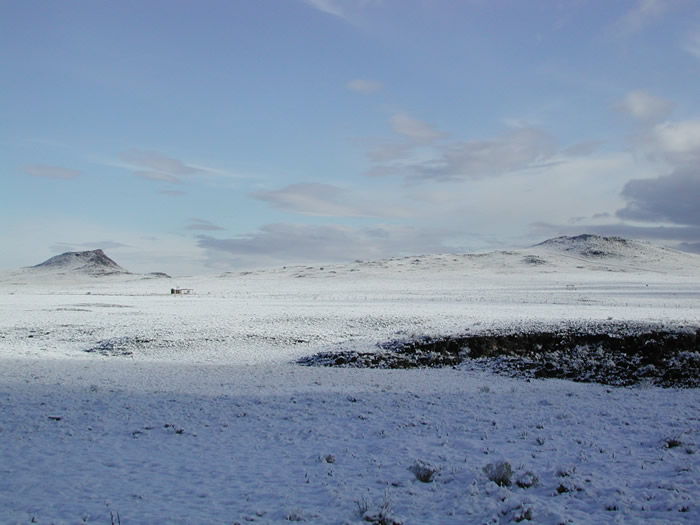
Winter scene of snow covered cinder cones at the Volcanoes Day Use Area.
Coyote and Rattlesnake Petroglyphs
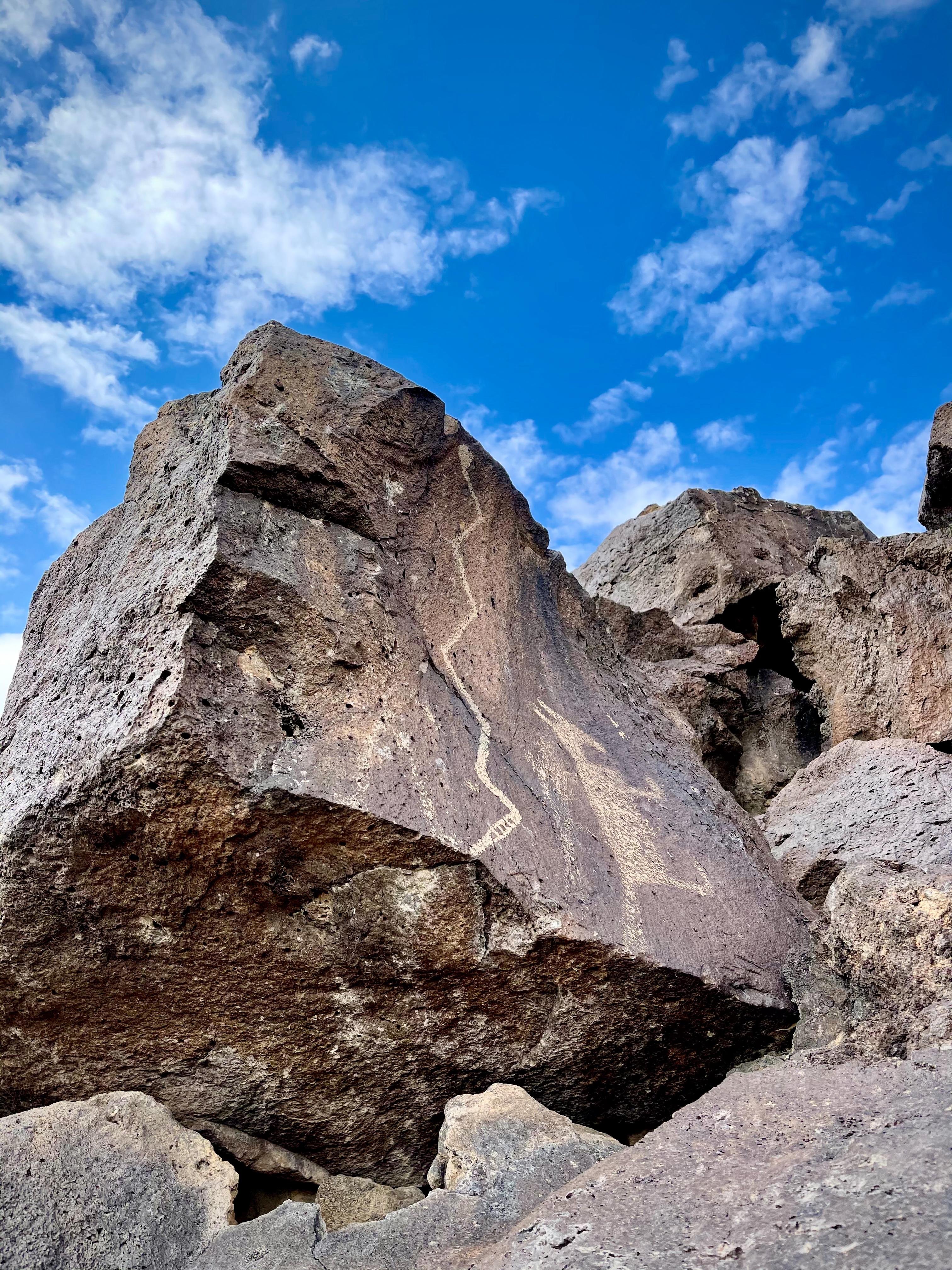
These petroglyphs could possibly depict a coyote and a rattlesnake, two of the more commonly seen animals at the monument.
Bird Petroglyph
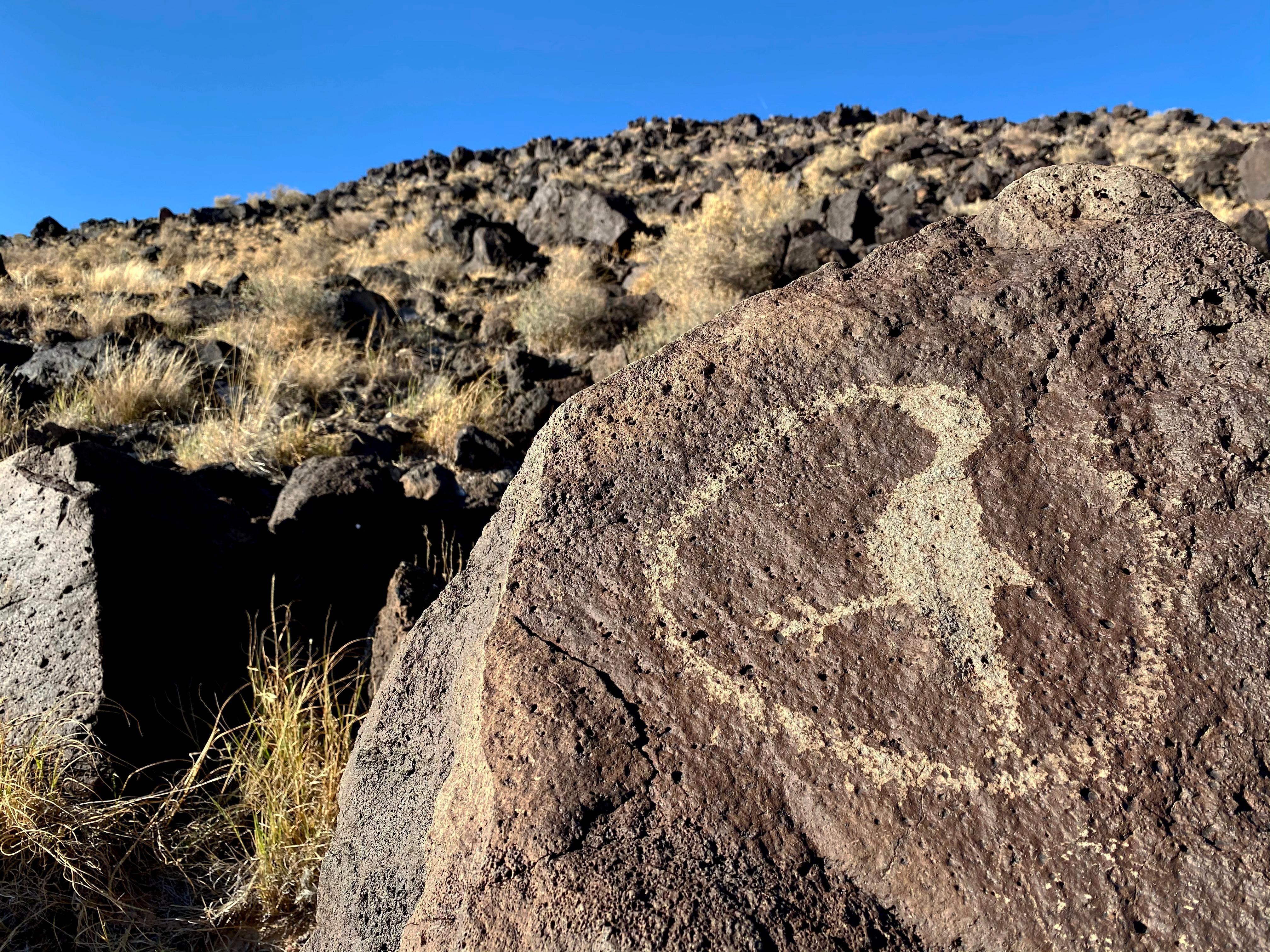
A petroglyph of a bird at Rinconada Canyon.
Bird and Footprint Petroglyphs
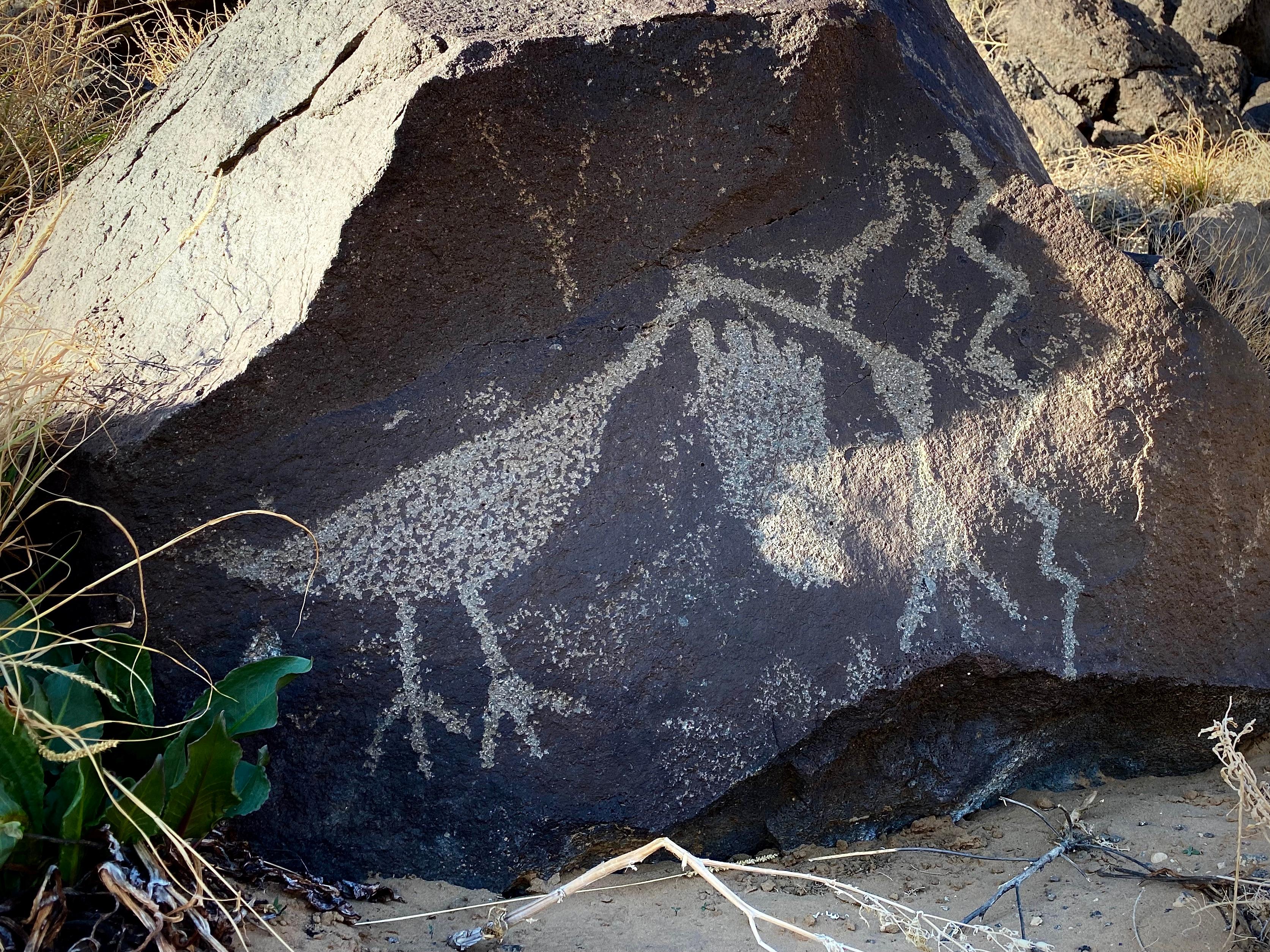
Petroglyphs of a bird and a footprint at Piedras Marcadas Canyon.
Line of Volcanoes
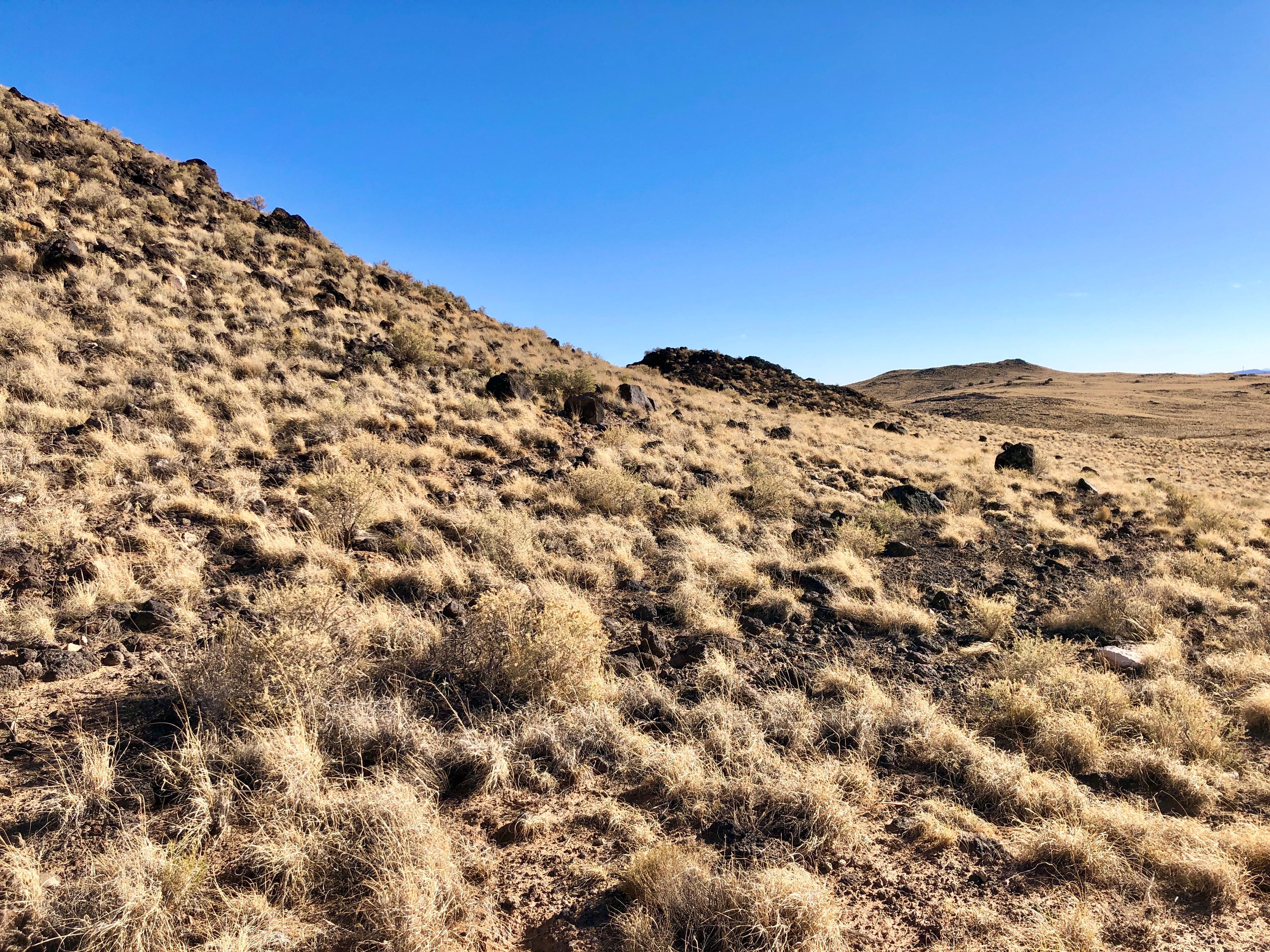
A line of cinder cone volcanoes at the Volcanoes Day Use Area.